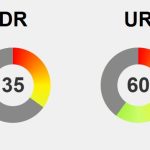What do the legendary figures of Odysseus and Batman reveal about the true nature of heroism? Both exemplify how wit, resilience, and moral conviction enable individuals to overcome seemingly insurmountable challenges, yet their contrasting motivations—Odysseus’s quest for home and honor versus Batman’s pursuit of justice—highlight different facets of heroic virtue. Their stories emphasize that heroism isn’t solely about physical strength or divine favor but about strategic thinking, internal growth, and sacrifice. Through clever problem-solving, perseverance in adversity, and confronting their inner flaws, both heroes demonstrate that heroism is a deeply human journey accessible to us all. But in a world constantly shifting, what qualities truly define a hero? Their enduring legacies suggest that resilience, intellect, and moral resolve remain universal virtues—powerful tools we can harness in our own lives to face challenges and inspire hope.
Unveiling Heroism: Wit and Determination as Core Traits
Heroism isn’t just about daring feats or physical strength; it’s a reflection of our core human values—resilience, wit, and unwavering determination. What makes a hero memorable isn’t solely their ability to conquer monsters or enemies, but their mindset and the way they face adversity with intelligence and resolve. Heroism, at its heart, is about navigating challenges thoughtfully, using cleverness to outsmart obstacles, and persisting even when the odds are stacked against you.
Throughout history, stories of heroes have evolved across cultures and eras, highlighting different traits but often emphasizing the importance of mental toughness. Ancient Greek heroes like Odysseus exemplified this through their cunning and moral resolve, navigating divine wrath and mythical dangers with strategy and moral virtue. Today’s heroes, like Batman, operate in complex urban landscapes, relying on resilience, technological mastery, and psychological insight to fight chaos. Despite their differences, both types of heroes rely on wit and perseverance to triumph over adversity.
Focusing on these traits reveals that heroism isn’t about brute force or superficial bravery. It’s about how individuals use their intelligence, emotional resilience, and moral conviction to overcome setbacks. Odysseus’s cleverness turned perilous encounters into opportunities for survival, while Batman’s detective skills and strategic planning allow him to outthink villains and restore order. Their stories remind us that true heroism often depends more on mental agility and inner strength than on physical prowess.
Internal struggles also shape what it means to be heroic. Odysseus’s hubris and emotional vulnerabilities make him more human, teaching humility and resilience through his long journey. Batman’s guilt and moral doubts challenge his resolve, yet he channels these struggles into a relentless pursuit of justice. Facing their own flaws, both heroes show that heroism involves confronting and mastering personal vulnerabilities, transforming them into sources of strength and growth.
This broader view of heroism emphasizes sacrifice and perseverance. Odysseus endured divine punishment and physical suffering, driven by a desire to return home and honor his commitments. Batman risks his safety, morality, and happiness in his fight against Gotham’s chaos. Their willingness to sacrifice personal comfort highlights that genuine heroism often entails hardship and personal costs, making their victories all the more meaningful.
Ultimately, heroism isn’t a fixed trait but a dynamic process of growth and resilience. Both Odysseus and Batman evolve through their experiences, learning from mistakes and staying committed despite setbacks. Their stories serve as powerful reminders that heroism is accessible to everyone—something we can develop through wit, perseverance, and moral clarity. These qualities are universal, waiting to be cultivated in our daily lives, proving that heroism is within reach for us all.
Cultural Roots of Heroes: From Greek Legend to Urban Vigilante
The origins of Odysseus and Batman are deeply rooted in the societies and cultural values that shaped their stories. Odysseus comes from ancient Greece, a civilization that prized cleverness, honor, and divine favor. His tales reflect a culture that viewed wisdom and strategic thinking as essential tools for overcoming both mortal and divine challenges. Greek heroes like Odysseus embodied leadership and moral virtue, emphasizing the importance of wit and resilience in navigating a world filled with gods, monsters, and moral tests.
In contrast, Batman’s character emerged from a modern urban landscape, shaped by a society grappling with crime, corruption, and moral ambiguity. Created in 1939, Batman’s origin story—transforming from a grieving billionaire into a vigilante—mirrors contemporary anxieties and hopes. His reliance on detective skills, advanced technology, and psychological insight responds to a world where heroism involves navigating complex gray areas of morality and internal conflict. Unlike Odysseus’s divine encounters, Batman’s battles are rooted in personal trauma and societal chaos.
Both figures exemplify how societal influences mold the ideals and expectations of heroism. Odysseus’s cleverness and resilience echo Greek values of leadership and honor, highlighting moral strength and resourcefulness. His adventures symbolize the human struggle to survive and thrive through intelligence and perseverance. Meanwhile, Batman’s resilience and technological mastery reflect modern priorities: individual responsibility, innovation, and moral clarity in confronting urban threats. Their stories show that heroism adapts to societal needs while maintaining core virtues.
The cultural significance of these heroes extends beyond their stories. Odysseus’s journeys are more than myth—they embody Greek admiration for wisdom and endurance. His voyage symbolizes the universal human journey of navigating life’s perils through intelligence and resilience. Batman’s enduring popularity mirrors contemporary values of justice and ingenuity, resonating with audiences facing their own societal and moral complexities. Both heroes serve as mirrors to their cultures’ ideals, illustrating how heroism is shaped by the societal context in which it develops.
Throughout history, these stories reveal recurring themes about what societies deem heroic. Odysseus’s emphasis on cunning and endurance underscores a culture that values moral virtue and strategic leadership. His story teaches that resilience and wit can triumph over divine and mortal foes. Conversely, Batman’s focus on resilience, technological mastery, and moral resolve highlights a shift towards valuing individual agency and moral complexity. These evolving ideals show that while the virtues of heroism remain constant, their expression adapts to societal changes.
In essence, Odysseus and Batman demonstrate that heroism is not static but continuously shaped by cultural and societal forces. Their stories reveal how fundamental virtues—wit, resilience, moral conviction—persist across ages, yet are expressed differently depending on the times. From divine favor and mythic virtue to moral gray areas and technological mastery, these heroes reflect the shifting landscape of what it means to be truly heroic. Their enduring appeal lies in their ability to embody these universal qualities within the unique worlds they inhabit.
Traits of True Heroes: Strategy, Resilience, and Inner Strength
Odysseus and Batman exemplify heroism through their mastery of skills that set them apart from others. Central to their success is their sharp intelligence and strategic thinking. Odysseus’s legendary cleverness was crucial in navigating dangers—whether outsmarting the Cyclops with a simple trick or devising plans that outwitted divine beings and enemies alike. His quick thinking and ability to craft intricate solutions transformed perilous situations into opportunities for survival. Similarly, Batman’s detective skills, technological expertise, and psychological insight enable him to analyze complex schemes and anticipate opponents’ moves. Both rely more on mental agility than brute force to prevail.
Resilience and determination fuel their heroic journeys. Odysseus’s endurance through a decade of hardships reflects unwavering resolve to return home, despite storms, divine wrath, and temptations. His ability to persist amid setbacks demonstrates mental toughness that defines true heroism. Batman’s resilience is equally evident. Facing relentless threats and moral doubts, he refuses to give up, channeling his inner strength into relentless pursuit of justice. Perseverance sustains both heroes, even when the odds seem insurmountable.
Internal struggles deepen their character arcs. Odysseus’s hubris often puts him at risk, exposing vulnerabilities that serve as lessons in humility and resilience. Batman’s guilt over his parents’ death and moral conflicts threaten to derail him, yet he transforms these struggles into fuel for his relentless mission. Confronting and mastering their own flaws, both heroes turn vulnerabilities into sources of strength, illustrating that heroism involves ongoing self-awareness and growth.
Sacrifice is a vital element of their stories. Odysseus endures divine punishment, physical pain, and emotional suffering—driven by a desire to reclaim his life and honor his commitments. Batman risks his safety, moral integrity, and personal happiness in his fight against Gotham’s chaos. Their willingness to endure hardship and give up personal comfort highlights that genuine heroism often involves personal costs, making their victories meaningful and inspiring.
Both heroes demonstrate that heroism isn’t just about strength or bravado; it’s rooted in mental agility and emotional resilience. Their stories show that strategic thinking, perseverance, and inner conviction are often more vital than raw power. This blend of intellect and grit transforms ordinary individuals into powerful symbols of hope and resilience, capable of inspiring others to face their own challenges.
Their journeys reveal that heroism is a deeply human experience. Odysseus’s pride and vulnerabilities, along with Batman’s guilt and moral doubts, show that even the greatest heroes grapple with internal demons. Yet, these struggles become catalysts for growth, fostering resilience and moral clarity. Facing internal conflicts allows them to evolve and stay committed, reinforcing that heroism is as much about inner strength as external action.
In essence, Odysseus and Batman teach us that heroism involves a dynamic combination of mental sharpness, emotional resilience, and moral conviction. Their stories prove that facing adversity with intelligence and grit often outweighs physical prowess. By harnessing their minds and hearts, they demonstrate that true heroism is accessible to everyone—something we can develop through perseverance, cleverness, and moral resolve. Their examples inspire us to see heroism as an ongoing journey of self-improvement, not a fixed trait.
For those inspired by these legendary figures, exploring ways to develop your own strategic and resilient mindset can be incredibly rewarding. Embracing continuous growth and learning from stories of heroes like Odysseus and Batman can help you build inner strength and perseverance. To discover practical tips and resources on cultivating resilience and strategic thinking, you can explore this helpful guide on heroism strategies.
Deep Dives into Heroic Feats: Odysseus’s Cunning and Batman’s Tactics
Odysseus’s encounter with the Cyclops offers a vivid illustration of how wit and strategic thinking define heroism. Faced with a monstrous opponent far more powerful than himself, Odysseus’s quick mind turned danger into opportunity. Instead of relying solely on brute strength, he devised a clever plan: blinding the Cyclops and escaping under the sheep. This story exemplifies the power of creative problem-solving under pressure, highlighting that heroism often hinges on mental agility rather than physical might.
Similarly, Batman’s battles against iconic villains like the Joker showcase how strategic planning and psychological insight are essential tools. Batman’s ability to anticipate his enemies’ moves, set traps, and exploit their weaknesses demonstrates that intelligence can outmatch raw force. His detective skills, technological mastery, and psychological tactics allow him to navigate chaos and restore order in Gotham, reinforcing that heroism is often about outthinking opponents rather than overpowering them.
Resilience plays a central role in both stories. Odysseus’s long voyage, laden with storms, divine wrath, and temptations, tested his endurance and resolve. Yet he persisted, driven by a deep desire to return home. His unwavering perseverance amid setbacks reveals that resilience is a defining trait of heroism. Batman’s resilience shines through his refusal to give up despite relentless threats and moral dilemmas. His ability to withstand exhaustion and moral conflict underscores the importance of emotional strength in heroic journeys.
Internal struggles also deepen their narratives. Odysseus’s hubris and emotional vulnerabilities expose the human side of heroism, teaching humility and resilience through hardship. Batman’s guilt over his parents’ death and moral doubts threaten to undermine him, but he channels these internal conflicts into a relentless pursuit of justice. Confronting and mastering their own flaws enables both heroes to grow stronger, illustrating that heroism involves ongoing self-awareness and inner development.
Sacrifice features prominently in their stories. Odysseus endures divine punishment, physical pain, and emotional suffering—all motivated by a desire to reclaim his life and honor his commitments. Batman risks his safety, morality, and personal happiness to protect Gotham’s citizens. Their willingness to sacrifice personal comfort and face hardship highlights that genuine heroism often demands tough choices and personal costs, making their victories all the more admirable.
Both heroes demonstrate that heroism relies heavily on mental and emotional resilience. Odysseus’s cunning and perseverance helped him outwit monsters and divine beings, transforming danger into opportunities. Batman’s detective skills and moral resolve enable him to confront Gotham’s chaos head-on. Their stories remind us that strategic thinking, emotional strength, and moral conviction are often more vital than mere physical power, turning ordinary individuals into symbols of hope and resilience.
Their internal battles reveal heroism as a deeply human experience. Odysseus’s pride and vulnerabilities, along with Batman’s guilt and moral conflicts, show that even the greatest heroes grapple with doubts. Yet, these struggles serve as catalysts for growth, helping them evolve and stay committed to their missions. Facing internal demons is integral to their journeys, emphasizing that heroism involves continuous self-improvement and resilience in the face of adversity.
In the end, these stories demonstrate that heroism is a complex blend of mental sharpness, emotional resilience, and moral conviction. Both Odysseus and Batman exemplify how facing challenges with intelligence and grit often outweighs brute strength. Their journeys inspire us to harness our own inner resources—perseverance, cleverness, and moral clarity—to navigate life’s obstacles. Their legacies remind us that heroism isn’t confined to myth or fiction but is a universal potential within us all, accessible through resilience and resolve.
Rethinking Heroism: Resilience, Inner Struggles, and Universal Potential
The stories of Odysseus and Batman challenge the common idea that heroism depends solely on extraordinary powers or moral perfection. Instead, they reveal that genuine heroism is rooted in resilience, cleverness, and a strong sense of purpose. Both figures demonstrate that facing adversity with intelligence and unwavering determination can often be more powerful than raw strength. Their journeys show that heroism involves navigating complex challenges, often with limited resources, and still finding a way to persevere. It’s about using what you have—your mind, heart, and resolve—to overcome obstacles that seem insurmountable.
What stands out in their stories is how internal struggles shape what it means to be heroic. Odysseus’s pride and emotional vulnerabilities push him into danger, but also teach him humility and resilience. Batman’s guilt and moral doubts threaten to weaken him, yet they become sources of his relentless drive for justice. These internal conflicts highlight that heroism isn’t about being flawless; it’s about confronting and mastering personal flaws, transforming vulnerabilities into sources of strength. Facing internal demons is part of the journey that makes heroes more human and more relatable.
Both heroes exemplify sacrifice as a core element of heroism. Odysseus endures divine punishment, physical pain, and emotional suffering—all driven by a desire to return home and honor his commitments. Batman risks his safety, morality, and happiness to protect Gotham’s citizens. Their willingness to give up comfort and accept hardship underscores that true heroism often involves personal costs. Choosing a greater purpose over personal comfort and being willing to endure sacrifice make their victories meaningful and inspiring.
Their stories also emphasize that heroism is a dynamic process of growth. Odysseus and Batman evolve through their experiences, learning from mistakes and staying dedicated despite setbacks. Their journeys teach us that heroism isn’t fixed but cultivated through perseverance, self-awareness, and moral clarity. These qualities are accessible to everyone—they remind us that we too can develop resilience and wit in our own lives. Heroism becomes less about grand gestures and more about everyday choices to face challenges with courage and integrity.
In the end, Odysseus and Batman show that true heroism goes beyond external acts or superhuman abilities. It’s about resilience, strategic thinking, and moral conviction—qualities we all possess and can nurture. Their stories inspire us to recognize and harness these traits within ourselves, making heroism not just a mythic ideal but a practical, attainable part of our daily lives. By confronting our internal and external struggles with resolve and intelligence, we can all embody the heroism that defines the best of human nature.





